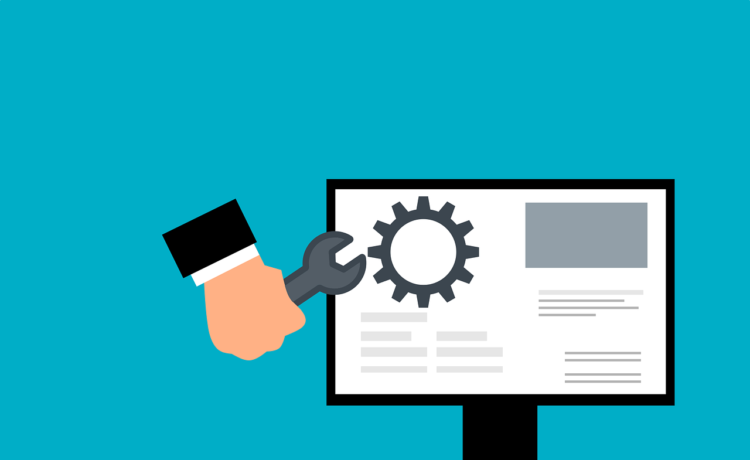The healthcare industry is rapidly evolving, with technology playing an instrumental role in reshaping how care is delivered, managed, and experienced. Among the many technological advancements, software development in healthcare has emerged as a game-changer, enabling innovative solutions that improve patient outcomes and operational efficiency. This blog explores the future of software development in healthcare, focusing on emerging trends and how they are transforming the industry.
The Role of Software Development in Healthcare
Software development in healthcare bridges the gap between medical expertise and technological innovation. From patient management systems to AI-powered diagnostic tools, healthcare software solutions streamline processes, reduce errors, and improve accessibility.
Why Software Development is Critical for Healthcare
- Improved Patient Care: Custom healthcare software ensures personalized care through detailed data analysis.
- Operational Efficiency: Automation of administrative tasks saves time and resources.
- Data-Driven Decisions: Advanced analytics provide actionable insights for better decision-making.
- Enhanced Accessibility: Telemedicine and mobile health apps ensure care delivery across geographical barriers.
Emerging Trends in Healthcare Software Development
1. Telemedicine Software Development
The COVID-19 pandemic significantly accelerated the adoption of telemedicine, and its growth continues to soar. Telemedicine software enables patients to consult with healthcare providers remotely, ensuring timely medical attention.
- Future Trends:
- Integration with wearable devices for real-time monitoring.
- AI-based chatbots for preliminary diagnosis and patient support.
- Enhanced security features to protect patient data during virtual consultations.
Organizations offering telemedicine software development are focused on creating intuitive platforms that are HIPAA-compliant, scalable, and user-friendly, making remote healthcare more accessible.
2. AI and Machine Learning in Diagnostics
AI-powered tools are revolutionizing diagnostics by analyzing vast datasets with incredible speed and accuracy. Machine learning algorithms assist healthcare providers in detecting diseases earlier and recommending personalized treatments.
- Applications in Software Development:
- Predictive analytics to identify at-risk patients.
- AI-based imaging tools for detecting anomalies in X-rays, MRIs, and CT scans.
- Virtual health assistants powered by natural language processing.
3. Blockchain for Data Security
As healthcare systems become increasingly digital, data security remains a top concern. Blockchain technology offers a decentralized solution for secure data storage and sharing.
- Use Cases in Healthcare IT Solutions:
- Managing electronic health records (EHRs) with tamper-proof encryption.
- Streamlining insurance claims with transparent, real-time verification.
- Facilitating secure data exchange between healthcare providers.
4. Internet of Medical Things (IoMT)
IoMT refers to interconnected medical devices that collect, analyze, and transmit patient data. From wearable devices to smart hospital beds, IoMT plays a vital role in real-time monitoring and predictive healthcare.
- Future Applications:
- Smart inhalers for asthma patients.
- Remote monitoring of chronic diseases using IoT-enabled devices.
- Automated inventory management for medical supplies.
5. Advanced Analytics and Big Data
Healthcare generates enormous amounts of data daily, making advanced analytics indispensable. Big data in healthcare helps identify patterns, improve patient outcomes, and reduce operational inefficiencies.
- Key Areas of Application:
- Predictive modeling for patient admissions and disease outbreaks.
- Optimizing hospital resource allocation.
- Tailoring treatment plans using patient history and genetic data.
Healthcare IT solutions leveraging big data are redefining how providers approach patient care and operational strategies.
The Role of Software Development Consulting Services
Developing innovative healthcare software requires expertise in both technology and healthcare regulations. This is where software development consulting services come in. These services help healthcare organizations design, develop, and implement software solutions that align with industry standards and compliance requirements.
Benefits of Software Development Consulting Services
- Tailored Solutions: Ensure the software meets specific organizational needs.
- Regulatory Compliance: Navigate complex regulations like HIPAA and GDPR with expert guidance.
- Cost Efficiency: Avoid unnecessary costs by streamlining the development process.
- Future-Proof Systems: Build scalable software that adapts to emerging technologies.
Challenges in Healthcare Software Development
While the potential is immense, software development in healthcare faces several challenges:
- Data Security and Privacy: Protecting sensitive patient data from breaches.
- Regulatory Compliance: Meeting stringent healthcare standards.
- Interoperability: Ensuring software works seamlessly with existing systems.
- High Development Costs: Balancing innovation with budget constraints.
Future Outlook
The future of healthcare software development is promising, driven by advancements in AI, IoT, blockchain, and cloud computing. Businesses and healthcare providers are increasingly investing in custom healthcare IT solutions to stay competitive and deliver superior patient care.
Emerging areas like telemedicine software development and IoMT will continue to gain traction, offering immense opportunities for developers and healthcare organizations alike.
Conclusion
Software development in healthcare is at the forefront of a technological revolution, offering solutions that improve patient care, optimize operations, and address critical challenges. From healthcare IT solutions to telemedicine software development, the industry is ripe with opportunities to innovate. Partnering with expert software development consulting services ensures that healthcare organizations can navigate this complex landscape effectively and build future-proof systems.
By staying abreast of emerging trends and embracing cutting-edge technologies, healthcare providers can transform their services and meet the ever-evolving needs of patients worldwide.













